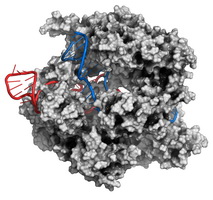
University of Ljubljana Discusses New Variants of CRISPR Genome Editing Enzymes
June 28, 2017| |
 CRISPR-mediated genome editing with the Streptococcus pyogenes Cas9 enzyme is revolutionizing life science research by providing new tools for genetic modification due to its specific targeting in the genome of hosts. While plant biotechnologists have used the Cas9-based system since 2013, there are still some limitations to its use in plants.
CRISPR-mediated genome editing with the Streptococcus pyogenes Cas9 enzyme is revolutionizing life science research by providing new tools for genetic modification due to its specific targeting in the genome of hosts. While plant biotechnologists have used the Cas9-based system since 2013, there are still some limitations to its use in plants.
Solutions could come from new variants of genome editing enzymes that were recently discovered and comparable to the Cas9 in terms of precision. However, most of them are less well known in the plant science community.
These include systems with improved RNase activity such as C2c2 from Leptotrichia shahii and Cas9 from Francisella novicida. Other systems are relatively smaller, allowing for better delivery to host cells. These are the Cas9 enzymes from Staphylococcus aureus, Streptococcus thermophiles and Neiserria meningitides, as well as the Cpf1 enzyme from F. novicida, Acidaminococcus sp.and Lachnospiraceae bacterium. Other Cas9 variants from S. pyogenes are also considered due to their increased specificity.
The team of Jana Murovec from the University of Ljubljana in Slovenia reviewed these new enzyme systems for their use for genome editing, transcriptional regulation and cellular imaging. The team also discussed the possibilities they offer in plant biotechnology.
For more on this review, read the article in Plant Biotechnology Journal.
| |
Biotech Updates is a weekly newsletter of ISAAA, a not-for-profit organization. It is distributed for free to over 22,000 subscribers worldwide to inform them about the key developments in biosciences, especially in biotechnology. Your support will help us in our mission to feed the world with knowledge. You can help by donating as little as $10.
-
See more articles:
-
News from Around the World
- Adesina Wins 2017 World Food Prize
- New Alliance Seeks to Fast Track Crop Improvement in Africa
- 'Food Evolution' Movie Redefines GM Food Debate
- Study Finds Plants Sacrifice 'Daughters' to Survive the Cold
- Chinese Scientists Develop Purple Rice Using Novel Gene Stacking System
- Farmers Fight to Plant GE Maize MON810 in Italy
- Researchers Discover Molecular 'Samurai Sword' Directs Plant Growth
-
Research Highlights
- Researchers Identify Thermosensitive QTL for Enhanced Tuber Yield in Potato
- High-carotenoid Maize Does Not Compromise Vitamin A Absorption in Poultry, Study
-
Beyond Crop Biotech
- Ancient Oak Genome Sequenced; Reveals Youth
- Overexpression of PtCYP85A3 Promotes Growth and Biomass Production in Poplar
-
Resources
- Journal of Ecology Publishes Ecological Solutions to Global Food Security
-
Plant
- Researchers Review Genome Editing Techniques for Nitrogen Fixation Research in Legumes
- University of Ljubljana Discusses New Variants of CRISPR Genome Editing Enzymes
-
Read the latest: - Biotech Updates (January 14, 2026)
- Gene Editing Supplement (December 17, 2025)
- Gene Drive Supplement (February 22, 2023)
-
Subscribe to BU: - Share
- Tweet
